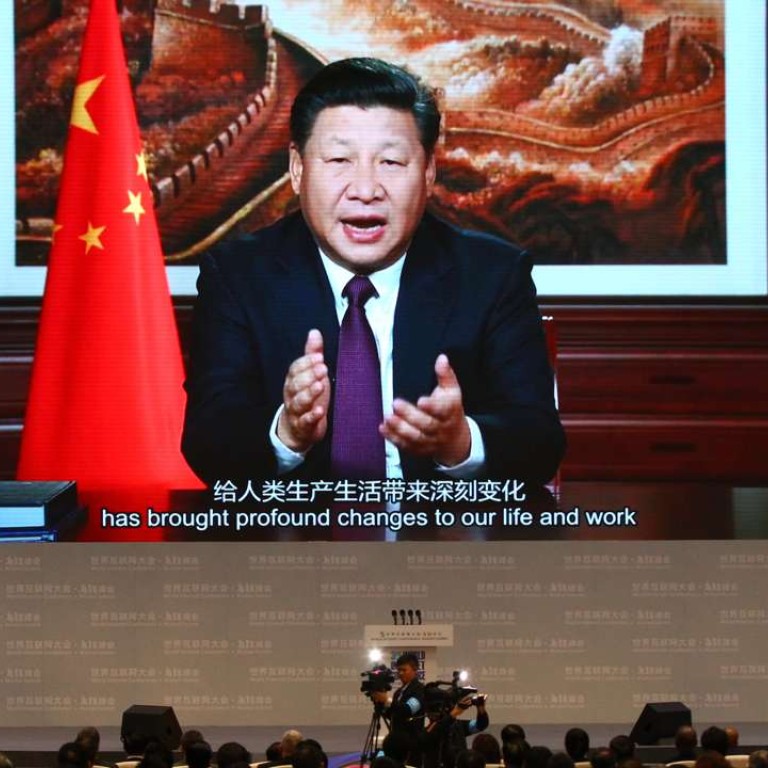
Communist Party leadership calls for fairer global governance of internet
Developing nations should take on a greater role in managing the web, president tells opening of conference in Wuzhen
The Communist Party leadership has repeated its call for the establishment of “cyberspace sovereignty” and for developing nations to assume a greater role in governing the internet at the global level.
But the appeal came as the mainland was ranked at the bottom of an index measuring internet freedom compiled by an independent watchdog.
China would “uphold cyberspace sovereignty” and make the governance of the global web “more fair and equitable”, President Xi Jinping said in video remarks played at the opening of the third World Internet Conference in Wuzhen, Zhejiang province.
Emerging markets and developing countries should have a bigger say. No internet hegemony should be allowed
Xi had voiced the idea of internet sovereignty at the annual summit last year, an unambiguous announcement that Beijing would intensify its censorship and control of the internet.
As Xi left for Peru where the Asia-Pacific Economic Cooperation forum is holding its summit, Liu Yunshan, the No 5 in the Politburo Standing Committee who leads ideological control, addressed the audience of about 1,600 people.
“Global cyberspace governance is at a crucial crossroads,” Liu said. “Emerging markets and developing countries should have a bigger say. No internet hegemony should be allowed. Nor should the governance be led by one or some parties,” he said.

Former French prime minister Dominique de Villepin said cyberspace had been led by the United States for a long time, while China and other countries had also set up their digital industries. Competition in technology and innovation was intensifying confrontation between major powers, Villepin said.
China was the year’s worst abuser of internet freedom
Ahead of the conference, Freedom House released its annual “Freedom on the Net” report, which listed China at the bottom of 65 countries.
“China was the year’s worst abuser of internet freedom. The Chinese government’s crackdown on free expression under President Xi Jinping’s ‘information security’ policy is taking its toll on the digital activists who have traditionally fought back against censorship and surveillance,” the organisation said.
The party is trying to walk a fine line of maintaining rigid control over how the internet is used on the mainland, while giving domestic technology companies enough room to thrive and take on global rivals.
The market rewards are immense, with some 700 million users on the mainland.
Governance should be aimed at ensuring a sustainable growth of the industry
Some notable names are absent from the Wuzhen conference. No representatives from Google, Apple or Twitter are speaking, although executives from Facebook, Microsoft, IBM, Intel and Tesla are slated to give addresses over two days, along with the CEOs of most of China’s major technology firms.
Jack Ma, founder of Alibaba Group, said: “Governance should be aimed at ensuring a sustainable growth of the industry.
“Supervision should develop and policies of each country should improve to catch up with the speed of technology development,” he said. Alibaba owns the South China Morning Post.


